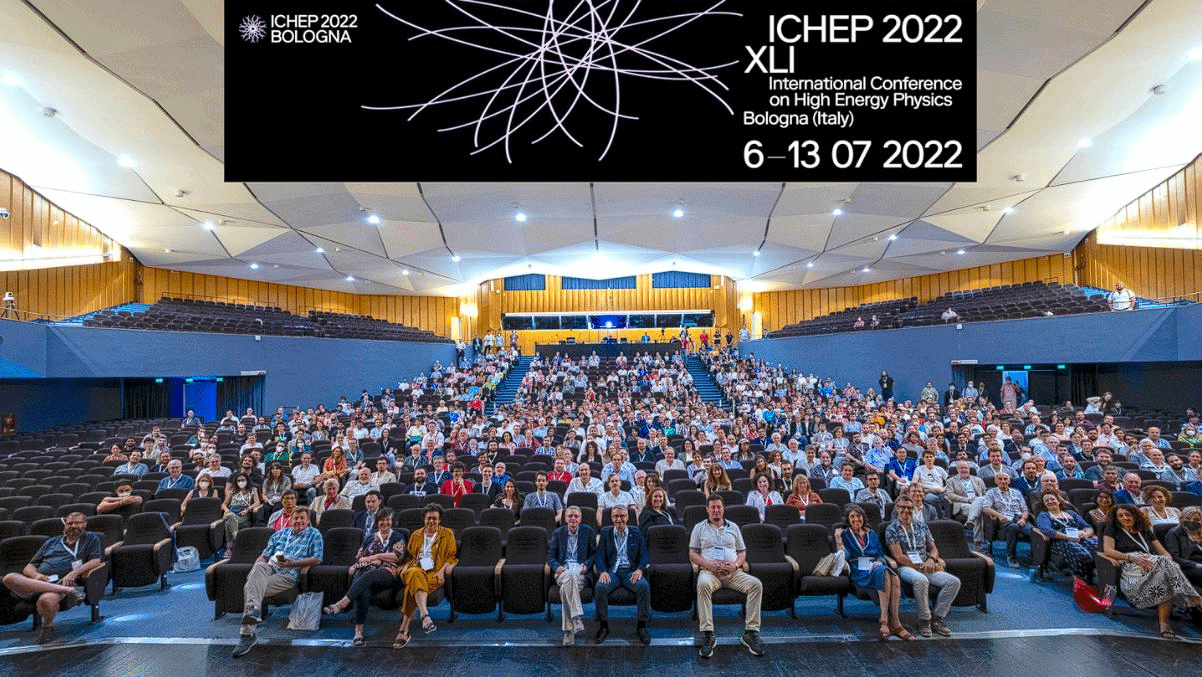
The bi-annual ICHEP conference is a can’t-miss in every high energy physics conference calendar. It is one of the biggest conferences of the community and brings together particle physicists from collider, neutrino, dark matter and astroparticle experiments, as well as colleagues from theory. The conference schedule not only includes the latest results of the many exciting particle physics experiments but also reserves time to discuss detector developments, machine learning applications, industry collaborations, outreach, and diversity and inclusion. This year marked a return to an in-person conference format while also enabling online participation for colleagues in other parts of the world. More than 1000 physicists made their way to Bologna (Italy) for the 41st edition of the conference, which took place from 6 to 13 July 2022.
The ATLAS Collaboration published 30 new results spanning from Higgs boson and Standard Model measurements to searches for new phenomena. These new analyses, together with other recent studies, were presented in detail by ATLAS members in 71 parallel session talks and 59 posters. The presented results are based on the dataset collected during Run 2 of the LHC (2015-2018) at a proton-proton collision energy of 13 TeV. In addition, researchers shared the first detector performance results from Run 3 of the LHC, which began on 5 July 2022.

